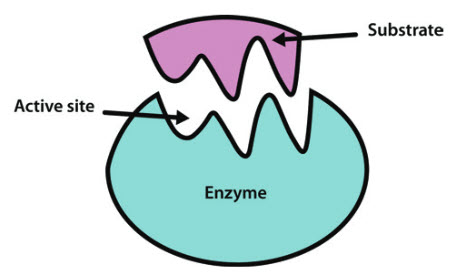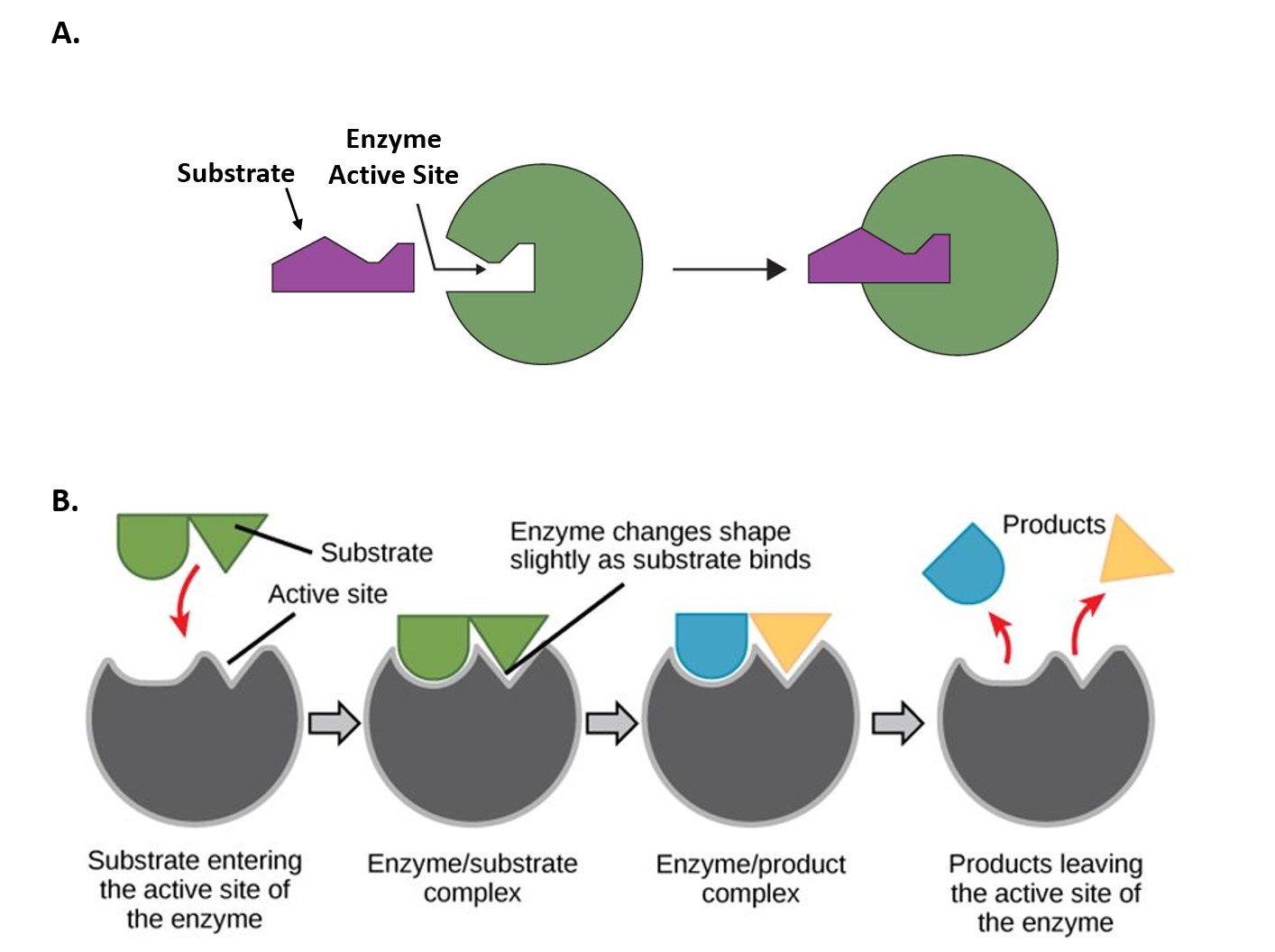Enzymes are proteins that are prone to damage and inactivation. Most cellular reactions occur about a million times faster than they would in the absence of an enzyme.

Enzyme Structure And Function Article Khan Academy
Cell repair anti-inflammatory detoxification metabolism improve immunity generate energy and promote blood circulation.

. These reactions occur in. 1Laundry powder it has enzymes that reacts with the stains on the clothes and causes the stains to vanish. Enzymes are biological molecules typically proteins that speed up the rate of chemical reactions.
To lower the activation energy. The objective of this activity is to introduce the concept of enzymes and their functions through the lock-and-key model by using real locks and keys as an analogy. Function of enzymes in biological systems.
Enzymes enable the human body to digest and absorb nutrients in food and maintain all internal organ functions including. It speeds up the biological reactions which are carried out in a biological system to sustain life. What is the function of enzymes in biological reaction.
Part 1 Day 1 2. Procedure Part 11. Enzymes act as catalysts facilitating chemical reactions.
An enzymes exact structure and its active site decide an enzymes specificity. The function of enzymes in biological systems are to act as a catalyst to speed up chemical reactions in metabolism. An enzyme is a type of protein found within a cell.
Enzymes can move parts of a cells internal structure and reorganize them to regulate cell activities. What do enzymes do. They are secreted released by the salivary glands and cells lining the stomach pancreas and small intestine.
Please see my previous answer to a very similar question. Digestion Enzymes are the key molecules that process digestion in the body. It acts as an catalyst and activate the rate of reaction.
Students can be divided in groups of 2 or 3. They deliver packages from one part to another inside cells pull chromosomes apart when the cells undergo mitosis and also pull cilia to trigger cell movement or to help cells move mucus up your airway as a routine to keep the airway clear. These enzymes acts as a catalyst in chemical reactions.
Enzymes are biological catalysts that catalyze more than 5000 different biochemical reactions taking place in all living organisms. An enzymes is a protein that facilitates a cellular metabolic process by lowering activation energy Ea levels in order to catalyze the chemical reactions between biomolecules. Enzymes are involved in critical body functions like Digestion Metabolism Blood pressure control Excretion in kidney Blood clotting Nervous system control Repair and wound healing Reproduction Immunity and body defense Secretion.
Without the regulation by enzymes chemical traffic trough the pathways of metabolism would become terribly congested because many chemical reactions would take such a long time. Enzymes and Their Functions Lock-and-Key Activity Objective. The Central Role of Enzymes as Biological Catalysts A fundamental task of proteinsis to act as enzymescatalysts that increase the rate of virtually all the chemical reactions within cells.
These enzymes are proteins which are essential for carrying out biological processes such as growth repair reproduction and metabolism. They do this by splitting the large complex molecules that make up proteins carbohydrates and fats into smaller ones. Without enzymes these reactions would be so slow that it may.
However these are different from other catalysts which are chemical and can last indefinitely. Explain why an investment of activation energy is necessary to initiate a spontaneous reaction Molecules are stable. Enzymes are the catalysts involved in biological chemical reactions.
Digestive enzymes are substances that help you digest your food. Updated on March 02 2020. Answer 1 of 5.
Enzymes are required for most of the chemical reactions that occur in organisms. The digestive system enzymes help the body break down larger complex molecules into smaller molecules such as glucose so that the body can use them as fuel. First the basic function of an enzyme is to increase the rate of a reaction.
Enzymes are proteins in biological systems used to regulate the metabolism. Biological catalysts enzymes are extremely specific that catalyze a single chemical reaction or some closely associated reactions. Describe the function of enzymes in biological systems An enzyme acts as a catalyst which speeds up reactions.
Second most enzymes act specifically with only one reactant called a substrate to produce products. Although RNAs are capable of catalyzing some reactions most biological reactions are. Enzymes are biological catalysts they speed up chemical reactions.
Enzymes are biological molecules typically proteins that significantly speed up the rate of virtually all of the chemical reactions that take place within cells. They are the gnomes inside each one of us that take molecules like nucleotides and align them together to create DNA or amino acids to make proteins to name two of thousands of such functions. An enzyme is essentially a protein which acts as a bio-catalyst ie.
Enzymes are proteins which act as biological catalysts. Enzymes present in the living organisms enhance the rate of reactions which take place within the body. Some enzymes reduce the activation energy to such low levels that they actually reverse cellular reactions.
Enzymes create chemical reactions in the body and can actually speed up the rate of a chemical reaction to help support life. Click again to see term 18. What is the role of enzymes in biological systems.

Enzyme Structure And Function Article Khan Academy

Chapter 6 Enzyme Principles And Biotechnological Applications Chemistry

Free Lab Catalase An Enzyme Common To Both Plants And Animals Biology Labs Biology Classroom Biology

Ch103 Chapter 7 Chemical Reactions In Biological Systems Chemistry
0 Comments